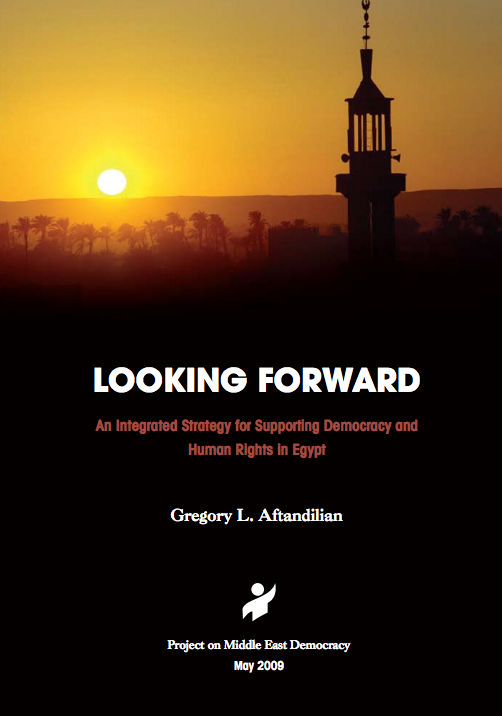For a full text copy of the report, click here.
As the Obama administration seeks to reorient its policy approach to the Middle East and improve relations with the region, the U.S.-Egypt relationship will inevitably be at the heart of that effort. This has already been demonstrated, as Hillary Clinton began her first visit to the Middle East as Secretary of State with a stop in Egypt.  Meanwhile, President Mubarak will on May 26 make his first visit to the White House in more than five years. President Obama has also announced that he has chosen Egypt as the location for a major address to the Muslim world on June 4. U.S. interests in the Middle East are best served by a strong U.S. relationship with a strong Egypt.
Meanwhile, President Mubarak will on May 26 make his first visit to the White House in more than five years. President Obama has also announced that he has chosen Egypt as the location for a major address to the Muslim world on June 4. U.S. interests in the Middle East are best served by a strong U.S. relationship with a strong Egypt.
Meanwhile, this is also a critical moment in Egypt. Recent years have seen increasing signs of public discontent with the status quo, accompanied by a series of regressive measures by the Egyptian regime. The aging President Mubarak, now 81 years old, is unlikely to serve beyond the end of his current term in 2011, raising the question of succession and increasing the importance of reform efforts that might breathe new life into Egypt’s political system. This moment of transition in Egypt, following the change in American administrations, can and should be viewed as a genuine opportunity for reform. It is also fraught with risk if reforms are further delayed.
POLICY RECOMMENDATIONS
- Change the Tone: Adopt a balanced public tone that is consistently supportive of the rights of all Egyptians.
- Establish a Strategic Dialogue: Launch a regular forum for addressing sensitive reform issues behind closed doors.
- Use Positive Conditionality to Encourage Reform: Offer a new, multilateral package of economic aid and trade benefits if reform benchmarks are met.
- Bolster Effective Democracy Assistance Programs: Focus on civil society programs for a large, diverse sector of independent Egyptian actors.
- Step Up Interagency Coordination: Strengthen mechanisms for policy coordination, consistent with a prioritization of reform in the bilateral relationship
- Work with Europe: Seek opportunities for multilateral dialogue on reform goals and criteria, toward the goal of coordinating initiatives and incentives
- Engage with Political Opposition Movements: Engage with a variety of opposition actors, including nonviolent Islamists.



